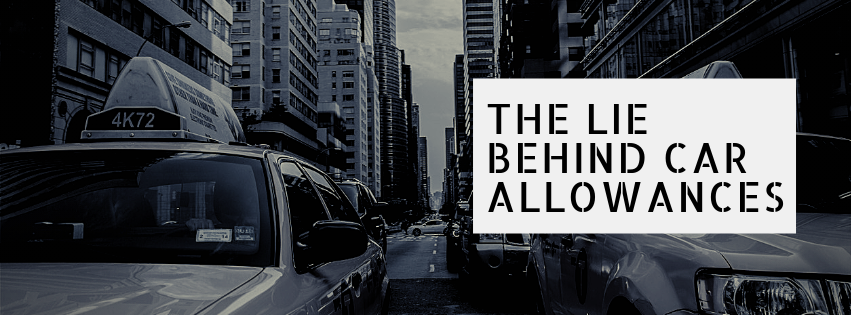In a recent report done by Motus, a respected vehicle reimbursement and management platform, a shocking level of waste was found in company-issued car allowances, caused by taxation.
The study, titled Vehicle Program Tax Waste Report, after taking a deep dive into the car allowance amounts issued by U.S. companies to their traveling employees and tracking both the effects on the employee and company, found that approximately 39% of that car allowance was lost to taxes before even touching the employee’s bank account – coming to a grand total of $1.2 billion in yearly tax waste nationwide.
Ken Robinson, Motus’ market research analyst, had this to say about the findings:
“While car allowance programs are simple to manage and offer employees the freedom to choose the vehicle they drive, they also have hidden costs that may not be obvious to employers,” he summarized. “The most concerning of these costs is the tax burden it places on both the companies and their employees. Our research found that an entire year’s allowance spend is lost to tax waste across both the individual and the company every two and a half years.”
How much tax waste exactly?
According to research, the average monthly car allowance is $575. Before that money can be deposited, however, as car allowances are grouped in with the rest of the employee’s income, social security (7.65%) and income tax (24%) must be applied, reducing the final amount to $393.
On the company’s side of things, due to their responsibility to cover payroll’s Medicare and social security taxes, that same average of $575 translates to a loss of $619 per month, per employee.
All things considered – both employer and employee – a total tax waste of $226 each month. A number that quickly adds up; especially when considering:
• 47% of car allowance recipients are executives, chief executives, or specialize in sales;
• Executive employees have an average monthly allowance of $830 (compared to the $575 average for mobile employees);
• $38 out of every $100 is lost in taxes;
• Companies that offer car allowances pay an estimate of $200 million in payroll taxes each year; and
• The U.S takes an average of $1 billion from car allowances annually.
Previously, tax law used to lessen the blow by allowing a sizable deduction on unreimbursed business mileage expenses. But as of 2018 and the TCJA, that law has been changed, leaving the full burden up to the taxpayer.
“Not all vehicle programs are taxable fringe benefits like car allowances. In fact, not all car allowance programs are fair and accurate for all employees, as they make large assumptions that the cost to own and operate a vehicle is the same everywhere in the country and that every trip is the same distance,” adds Motus’ CEO, Craig Powell.
His solution to help cut back on tax waste, for both the employee and employer?
“Fixed and Variable Rate (FAVR) programs remain the most accurate and defensible process for reimbursing employees for the business use of their personal vehicle and are the only IRS-approved mileage reimbursement method. While FAVR requires considerable data to verify the accuracy of expenses, platforms like Motus automate the process and make these programs easy to implement.”
Great advice, if you ask us. And if you’re searching for more information, the full Vehicle Program Tax Waste Report can be found here.
